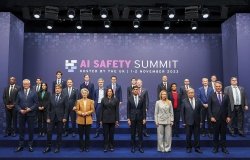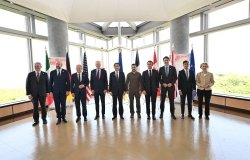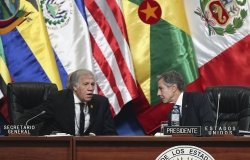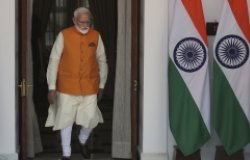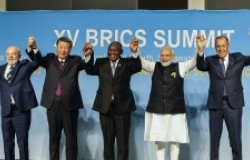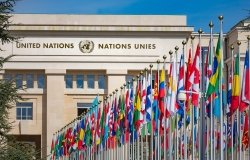New Borders and Old Neighbors in Europe
Overview
Summary of the East European Studies meeting with Elena Jileva, a Doctoral Candidate at the University of Sussex, UK, and a WWC-OSI International Junior Public Policy Scholar
Elena Jileva discussed the EU's visa policy and its implications for a wider Europe, focusing primarily on its impact on those countries currently not being considered as candidate states for EU enlargement. The common visa policy is crucial for relations between EU members and the candidate countries, as well as for relations between candidate states and non-candidate countries. Its purpose was to encourage cooperation between neighbors, lead to enhanced economic benefits and accelerate the accession process. Jileva argued, however, that the visa policy actually engenders exclusionary policies towards neighbors and impedes cross-border movement. Candidate countries on the fringe of the EU are implementing these exclusionary policies on their non-EU neighbors in order to maintain free access of movement within the EU. For example, since Poland (an EU candidate country) implemented a visa requirement for neighboring Ukrainians (a non-candidate country), there has been a 30% - 50% drop in trade across the border.
Jileva describes the new visa regulations directed towards those countries on the "black list" as time-consuming, expensive, and demeaning. However, there are some viable solutions that could be implemented to reverse the negative trends. For example, more consular staff could be provided and on-line applications could be introduced to speed up the visa application process; and, checkpoints could be modernized and border guards trained to increase speed and efficiency. Jileva also suggests that the black list be modified so that certain countries - possibly Ukraine and Russia - would not be required to obtain visas despite their non-EU status.
Hosted By

Global Europe Program
The Global Europe Program is focused on Europe’s capabilities, and how it engages on critical global issues. We investigate European approaches to critical global issues. We examine Europe’s relations with Russia and Eurasia, China and the Indo-Pacific, the Middle East and Africa. Our initiatives include “Ukraine in Europe” – an examination of what it will take to make Ukraine’s European future a reality. But we also examine the role of NATO, the European Union and the OSCE, Europe’s energy security, transatlantic trade disputes, and challenges to democracy. The Global Europe Program’s staff, scholars-in-residence, and Global Fellows participate in seminars, policy study groups, and international conferences to provide analytical recommendations to policy makers and the media. Read more
Thank you for your interest in this event. Please send any feedback or questions to our Events staff.

